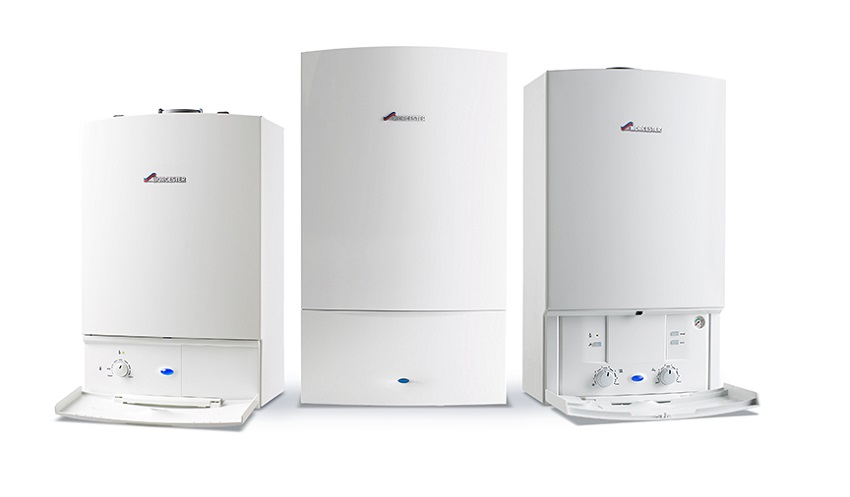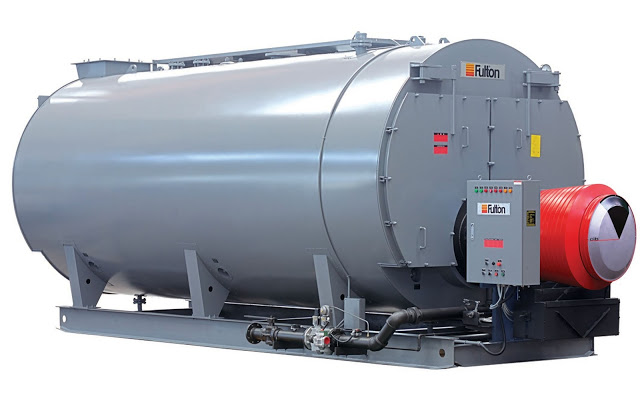There are many factors you need to consider when you want to find the best types of boilers and pick the right one for your home, office, etc. In this article from Linquip, we want to talk about these parameters and introduce different types of boilers and how they work to help you expand your knowledge on the subject and choose the best one for your property. Are you ready to learn? Then continue reading…
What is a Boiler?
Boilers are a vessel that heats up liquids (usually water) with combustion by burning fuels, generating steam and hot water.
The parameters to consider when choosing from different types of boilers
There are many things to consider but the most important ones are the type of the property, the size of your property, if there are any showers, the number of bathrooms, and the water pressure of the area. These factors have a great effect on the boiler you choose from different types of boilers and the efficiency also depends on choosing the right one. We will walk you through the classification of boilers and help you know them one by one.
Different Types of Boilers
There are different types of residential boilers, commercial ones, and industrial boilers. Here, we chose the most popular ones from each category:
-
Steam Boilers
This boiler type uses a heat exchanger for heating the water. The boiler is filled with water to the optimal level and then in order to deliver hot steam to radiators, it works with gravity and pressure. It heats the water to the point that it turns to steam and by increasing the pressure in the boiler, this steam rises throughout the pipes and reaches the outlets. In the radiators, the fluid then cools down and will be recycled back to the boiler to be reheated.
-
Water Tube Boilers
This item is among popular types of boilers which include tubes that contain water inside and the heat source is on its outside. This type is especially common because of its ability for rapid heat transfer. When the thermostat calls for heat, the burner is activated to heat the fluid. The expansion of the heated water results in the transfer of this extra volume into an expansion tank. When radiating the heat, the water cools down and returns to the boiler to be reheated.
There are different types of water tube boilers on the market such as D-type, M-type, O-type, Flex-tube, Low Water Content, etc. Almost all types of boilers in power plant uses the water-tube design since it is capable of operating at higher pressures. Plus, almost all types of marine boilers have this design as well. Different types of boiler used on ships should be able to endure higher pressures and hence, this design works well for them.
-
Fire Tube Boilers
Fire-tube boilers have a water-filled chamber and direct the heated gas through tubes inside this chamber. This gas is created by thermal induction, transferring the heat through the tubes’ walls. Unlike water-tubes, they are not suitable for high-pressure applications. But you can use them where there’s a constant and large steam demand.
There are different fire-tube boilers such as Cornish boiler, Lancashire boiler, etc.
-
Electric Boilers
Electric boilers are extremely efficient and environment-friendly since this item in the types of boilers brings heat to the place without using any fossil fuels. They heat water using an element and do this by demand since they don’t have any storage. There are different types of electric boilers on the market such as Dry Core Storage Boilers and Direct Acting Electric Boilers. They are highly affordable too.
-
Natural Gas Boilers
This boiler uses natural gas for heating purposes. This gas is either supplied from a large tank of propane gas outside the home or natural gas-lines of the town. The temperature of this gas is regulated with the help of a temperature gauge. The thermocouple minimizes fuel usage as well. By using the gas, a pilot light stays lit and warms the heating coils inside the natural gas boiler. The heat then is passed along to the water in the tank.
-
Condensing Boilers
This boiler type uses two heat exchangers: One for heating and the other for reheating purposes. The first one is used before the water goes out to the outlets and the other receives the cooled water to heat it again. They use the exhaust gasses’ energy potential for preheating the cooled water in the boiler.
-
Oil Boilers
The fuel used in this type, as the name suggests, is oil. They are a water-based heating system also known as oil-fired. There’s a separate oil tank that pumps the oil mixed with domestic biodiesel to the boiler for heating the water. Then, the hot water will be directed to the outlets in the place.
-
System Boilers
System boilers are the best option for places that have more than one bathroom. They don’t have a water tank but they need a hot-water storage cylinder. It has a quick installation and easy maintenance. The cold water enters the boiler from the main supply directly and is heated with a heat exchanger. The heat exchanger transfers the energy from the gas jets to the fluid and then pumps the heated water to the hot-water cylinder. They don’t need an expansion cistern and are economical as well. Their space-saving design and constant supply of the hot water makes them perfect for residential uses.
These were the most popular types of boilers in the market. There are other types of commercial boilers, industrial boilers, and residential ones. But the boilers in our list are more common. Now you know them well enough to choose the one that suits your needs. Do you know any other type that works well? Then comment below and share your knowledge with us! And if you have any questions, feel free to sign up on Linquip and one of our experts will answer your questions.
Buy Equipment or Ask for a Service
By using Linquip RFQ Service, you can expect to receive quotations from various suppliers across multiple industries and regions.
Click Here to Request a Quotation From Suppliers and Service Providers
Read More on Linquip
- List of Top Suppliers of Boilers
- The 5 Best Regular Boilers
- The 9 Best Combi Boilers
- Package Boiler: Your go-to guide to learn everything about them
- Locomotive Boiler 101: Your Go-To Guide for Locomotive Boilers
- Cornish boiler 101: All you need to know about this boiler type
- Lancashire Boiler 101: A go-to guide to know Lancashire Boiler
- How Much Does a New Combi Boiler Cost? A Clear Guide
- Types of Plate Heat Exchanger: Different Types with Wide Use
- Types of Heat Exchangers: An Introduction to All Essential about Specifications
- Boiler Efficiency
- Your Convenient Guide to Combi Boiler Installation Cost




